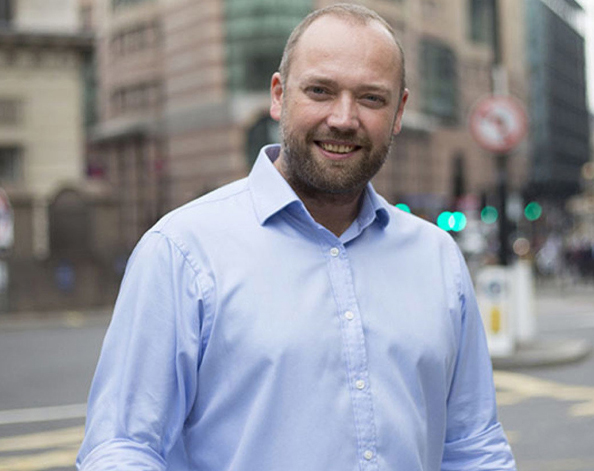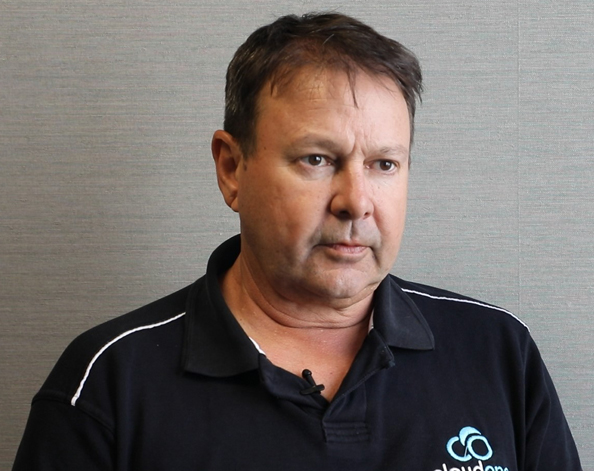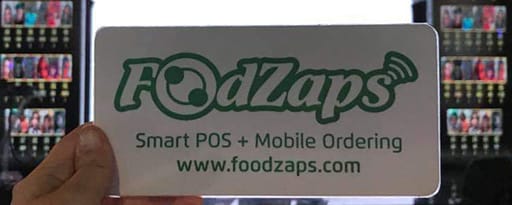In Focus: The UK fintech ecosystem
Subscribe to Investec Focus Radio SA
According to accounting firm KPMG, global investment in fintech in the first half of 2018 amounted to a record US$57.9bn across 875 deals – a significant increase from the US$38.1bn invested throughout 2017.
In an article published by the firm online, KPMG reports that the UK's fintech industry accounted for over US$16bn worth of investment in the first half of 2018 – more than any other country in the world. This was also more than half the total of the US$26bn investment overall into Europe, and US$2bn more than the US (at US$14bn).
Focus travelled from Singapore to London and South Africa to meet with fintech entrepreneurs and find out more about their innovative offerings. Here are four inspirational stories.

The rise of the digital-only 'neo bank'
While payments and lending companies still dominate the 2018 Fintech100 list (with 34 and 21 companies, respectively), the report highlights the rise of the digital-only 'neo bank', as well as a significant jump in the backing of fintechs by venture capitalists, with the companies on the list having raised over US$52bn during the first half of 2018; almost double that raised in 2017.
While not yet on the list of 100, Monese in the UK is one such neo bank, also known as a challenger bank.
Monese was created by Estonian Norris Koppel, after he struggled to open a UK bank account when he first arrived in London. "I was able to find a job and a flat easily, but I wasn't able to open a single bank account. That was hugely annoying and humiliating. Being an entrepreneur, I decided to do something about it," he said.

I was able to find a job and a flat easily, but I wasn't able to open a single bank account. That was hugely annoying and humiliating. Being an entrepreneur, I decided to do something about it.
Two years spent in a garage with a small development team saw the birth in 2015 of Monese as Britain's first mobile-only financial inclusion bank, which enables customers to open a UK-based current account in a matter of minutes using only a mobile app.
Today, Monese has translated its app into 11 languages and has some 700 000 account holders. It's now looking to expand to business users and add other features that customers expect from traditional banks, such as credit and insurance.
It was a concept that Investec in the UK was happy to back, says Devin Kohli, Investec's co-head of Emerging Companies: "We believed in the concept and the team, but what they've achieved over the past few years has exceeded all our expectations. Now we're at a level where the business is growing 20% month-to-month and its revenue numbers are improving every day."
The partnership between Investec and Monese is multifaceted, with Investec initially investing outright in Monese, and then backing it over three rounds of funding in equity support for the company. Today, it continues to advise the company, particularly in helping it attract further partnerships and funders as it grows.
Says Kohli: "That's testimony to what we're trying to do in the emerging companies' business, which is invest in and advise fintech entrepreneurs as they grow their businesses. We focus in particular on the seed stage, but we don't just do this in the UK; we do this in China, India, Australia and southern Africa, where we are trying to become relevant and partner with a lot of the fintech and wider technology entrepreneurs."

Reinventing the point-of-sale environment
One such South African company is CloudOne, a Cape Town-based fintech that is reinventing the point-of-sale environment in an emerging market.
Founder Dana Buys explains: "Point of sale deals with everything in a business, from ordering to invoice to payment and the basket of goods that go with it, and beyond. For example, integrating accounting systems, loyalty systems, quotes and lay-bys if it's a retail environment or order-ahead if it's a restaurant environment. It's really the whole range of what people do at point of purchase."
This type of service, says Buys, is particularly important in an emerging market where there are retail merchants in townships and rural areas who own shebeens and spaza shops. Dealing largely in cash, these are people who have been excluded from traditional banking systems but who want to start building credit records so they can buy a car or a house, or lease a property.

We interface with a whole bunch of fintech and traditional banking companies to make the whole payment/financing process a lot easier.
However, as Buys notes, access to a service such as CloudOne goes way beyond just the merchant to his or her entire economic transactional base: "For the first time, we have the whole ecosystem working together to enable this."
The ecosystem, says Buys, includes the merchant (who wants to get rid of cash), the consumer (who wants to spend it), as well as the wholesalers, who provide products to the spaza shops and who want to build stickier relationships because they have competition coming from the big retailers and other markets. Finally, there are the media and cellphone companies that want to sell valuated services, such as airtime and other things, through small merchants.
Collaboration between traditional financial services and fintechs are, therefore, key to what CloudOne delivers, says Buys: "We, for instance, facilitate payments as part of the service that we strive to improve for our customers, but we are not a payments company. We interface with a whole bunch of fintech and traditional banking companies to make the whole payment/financing process a lot easier. I think they go hand in glove; there's no separation."

Bringing fintech to the food and beverage sector
Singapore-based FoodZaps also deals with the point-of-sale environment, but specialises in restaurants and the food and beverage sector via a B2B (business-to-business) app. Started in 2012, it arose from an idea that co-founder Huey Meng had when restaurant staff brought him the wrong dish for the second time, because of an outdated system in an understaffed establishment.
The FoodZaps app is capable of running across multiple devices and aggregating information across all processes, from the customers using tablets for self-ordering and the analysis of staff performance, to which food dishes are doing well and even the collection of data for promotional purposes.
Rina Loh, another FoodZaps co-founder, elaborates further: "In Singapore, we have this PDPA (Personal Data Protection Act) regulation about privacy. So, the Customer Relationship Management companies will actually hold all the data and then, via application programming interface (API), you will be able to see your points redemption and things like that."

Building a product playground for banks
London-based Bud is a three-year-old fintech that, in 2017 alone, signed a deal with HSBC, raised £1.5m from UK-based Investec and Spain’s Sabadell Bank, and is in talks with a further 42 banks around the world about possible partnerships.
Touted as a "playground for banks to build in", Bud has enabled a platform for banks to build products that use other company's services. It also engages the UK's Open Banking system, which requires banks to share all the data they hold on customers with third parties if the customers want them to.
Edward Maslaveckas, the co-founder of Bud, explains: "What's happening today is the rise of intelligent systems and intelligent methods of interpreting data better, so as to give customers or businesses more insight into what decisions they're making. Layered on top of that is the world of API and a connection of services."

What's happening today is the rise of intelligent systems and intelligent methods of interpreting data better, so as to give customers or businesses more insight into what decisions they're making.
Bud describes itself as an independent company that focuses on the interconnectivity of accessing data from multiple service providers. In other words, instead of owning financial products itself, it acts as a 'middleman' to help its customers aggregate their data from the various different sources that hold this data, and then enables those customers to start making educated decisions.
Maslaveckas elaborates: "Right now, a lot of people are doing this by creating their own spreadsheets around the dinner table on a Sunday, manually entering things and picking up the phone to their bank. There's a lot of inaccuracy that goes along with that.
"So, we're trying to solve that challenge and relook at how we go from a world of: 'Okay, your data is everywhere' to 'Now your data is together, and you own it. What do you do with it?'"
Who's doing what among the Fintech 100?
According to the 2018 Fintech100, which is the fifth edition of this annual report, published jointly by fintech investment firm H2 Ventures and KPMG, the sectorial breakup of the Fintech 100 is as follows:
- 34 payment and transactions companies
- 21 lending companies
- 14 wealth companies
- 12 insurance companies
- 10 neo banks
- 4 'multi' companies (which play across sectors with multiple offerings)
- 5 'other' companies (including RegTech and data analytics innovators)
Meanwhile, in the 2018 Fintech100 report, the UK also features strongly, with 12 of its fintech companies (second only to the USA with 18 companies) featuring among those from across 36 countries listed in the report. Of the 11 countries from the Asia Pacific listed, Singapore leads with a total of six companies, while a significant new entry onto the list this year is one company from South Africa.
Receive Focus insights straight to your inbox








